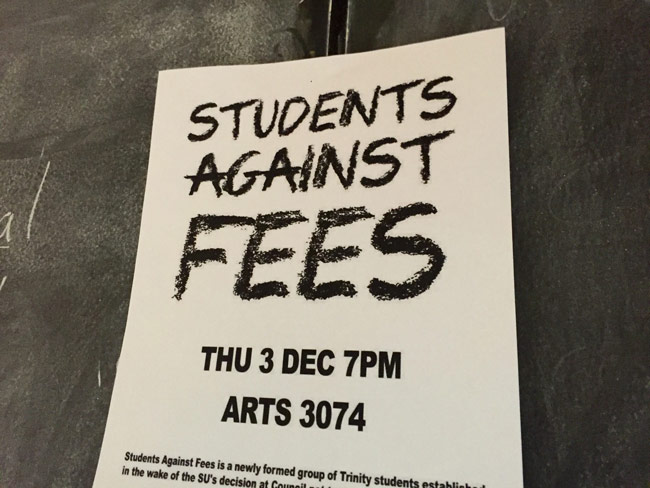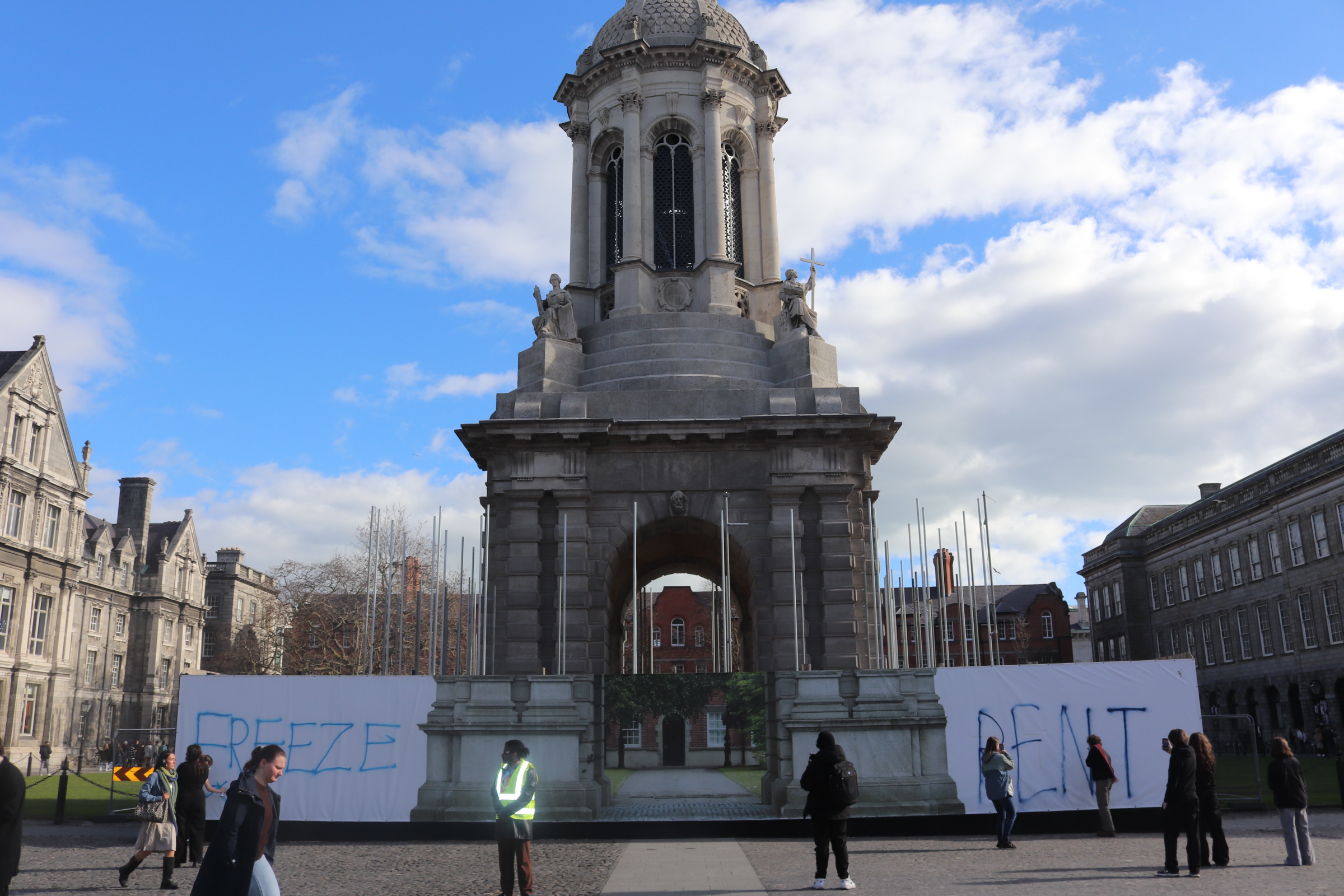A “Students Against Fees” meeting tonight decided to bring a broad motion, opposing the introduction of a government-supported loan scheme in conjunction with an increase in tuition fees, to the next council meeting of Trinity College Dublin Students’ Union (TCDSU).
This follows the recent failure of a motion opposing the introduction of government-supported loans at the most recent council meeting, which came amidst increasing speculation that loans will be recommended by the upcoming government working group report in conjunction with an increase in tuition fees. The working group is due to report by the end of the month.
The meeting was organised by fourth-year classics student, Oisín Coulter. Speaking to The University Times, Coulter said: “Our stated goal is to achieve opposition from the Students’ Union against fees, loans and to achieve equality of access for free education among all students”.
Students in attendance at the meeting tonight were from many different backgrounds, including students from the Trinity Access Programme (TAP) and mature students. Many of those present expressed bewilderment that the original motion was defeated, and several students complained that the union did not properly inform students that a motion on such an “important issue” was to be brought before its council.
Coulter expressed his belief that the majority of students will oppose the introduction of a loan scheme or tuition fees: “I think the number of people who messaged [Lynn Ruane] and the number of people who messaged us and have shown interest shows that students are clearly unhappy with what happened at the last council so I think we are going to win.”
Coulter attributed the failure of the motion to “misinformation” and opposing arguments that were convincing but, according to Coulter, “don’t really hold up”. He also said that there had been an assumption that the motion, which was proposed by TCDSU President, Lynn Ruane, and seconded by him, was simply going to pass. Speaking to The University Times just after she submitted that motion, Ruane had said: “I’ll be opposing student loans, I just need to make sure the union’s with me on it, which I’m sure they are.”
The group agreed that the best strategy for campaigning on the issue would be to distribute information to students on this issue in the form of posters and leaflets. They agreed that the campaign should focus on the personal impact these changes will have on current Trinity students.
In the long run, Coulter, pointing out that students are a “huge voting bloc” with the potential to influence government policy for higher education, said: “The only thing students can do is be the most powerful lobbying voice as possible and try and get our point across”. In the lead-up to the marriage equality referendum, TCDSU registered 3,500 students and claimed that over 80 per cent of students are registered to vote.
TCDSU council will meet on Tuesday December 15th.







